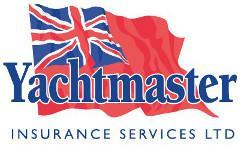We have recently been working on a new policy wording which has brought into focus claims that have occurred over the last few years that have been rejected by underwriters. The interesting point is that not all pleasure craft policies give the same cover as standard; some will include, for example, cover for canopies damaged in severe winds, others will not.
Some give limited cover for electrics if they get wet, others give much wider cover. One policy gave no cover for the consequential loss following a steering failure arguing that the fault should have been discovered and corrected. Another policy appears to no longer give cover for “negligence” which is usually the “catch all” for paying claims which might otherwise be excluded by “lack of due diligence”. The Brokers job here is to try to steer the potential customer to the policy offering the widest cover rather than just selling the cheapest cover – often an uphill battle!
There is also considerable difference between underwriters on the “extra” covers that are offered. For instance, if you have a speedboat and want to tow “toys” other than skis, many underwriters regard this as an unacceptable risk but there are those who will include these at an additional premium. If you want to go worldwide cruising rather than the more usual UK, Baltic or Mediterranean areas, brokers like us would know which underwriters to go to for comparative quotes and which would simply decline. Similarly, some underwriters will cover skipper and bareboat charter, others will not.
This all seems to come about because policies are written by individuals and those individuals have all experienced different commercial underwriting and claims successes and failures and hence come to different conclusions about what is acceptable and what is not.
The benefit for us in selling a good quality policy is a happy customer – one who gets his claim paid when he expects to! So saying, not everything that goes wrong with a boat can be covered by an insurance policy. The owner must keep up a good standard of maintenance – the policy is there to cover unexpected accidents – it’s not a maintenance contract!
On the good side, premiums appear to be remaining steady and at a pretty low level. Lloyds have recently reported a profitable year, the number of catastrophes being relatively low in the areas of the world where there is more extensive provision of insurance. It is a harsh fact of life that many of the world’s disasters seem to arise in the poorer areas where insurance is either unavailable or beyond the means of the local people – hence the importance of giving to disaster relief funds.
I would suggest that with boat insurance, just like most things in life, you get what you pay for; the important thing is not to find out that you needed something that you didn’t buy when the boat sinks!
D. Long - 31/03/2010
Return to Media Publications & Advice.

